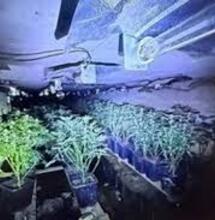Britain secretly decriminalised cannabis - and it's a disaster

Cannabis: Semi-decriminalisation does more harm than good
Cannabis: Semi-decriminalisation does more harm than good
For some time now, England and Wales have had a semi-decriminalisation programme for cannabis. And it has ended up criminalising more cannabis users than ever before.
But it doesn't criminalise all cannabis users: it primarily targets people who are young, black or Asian. It is a story of muddle-headed government initiatives, skewed police incentives, racism, drug wars and the old, old habit of treating white people more leniently than everyone else.
In 2004, when cannabis was made Class C, cannabis warnings were introduced. These were spoken warnings given by a policeman on the street if you were caught with a small amount of weed for personal use. Five years later the drug was returned to Class B, but the cannabis warnings remained. This effectively gave the police discretion in how they treated cannabis possession. The result of this discretion was the disproportionate targeting of black and Asian youths.
Cannabis warnings are now the first step on the 'escalator' system of options available to the police if you're caught. It goes like this:
First time: Cannabis warning. Informal, verbal, doesn't form part of your criminal record. This is the least harsh option available to a police officer if they catch you with drugs.
Second time: Penalty Notice for Disorder (PND). Issued to anyone who has already got a cannabis warning within the last 12 months. Results in an £80 fine which must be paid in 21 days. Like cannabis warnings, they don't contribute to your criminal record. Also like cannabis warnings, they are issued there and then on the street.
Third time: Caution. Police can use this instead of sending someone to court for prosecution. Anyone accepting a caution must admit their guilt and it does figure on their criminal record. Cautions are preceded by an arrest and being taken to the police station.
Fourth time: Charge. The police and the Crown Prosecution Service (CPS) can charge an individual for possession and send them to the courts.
This is the best-case escalator scenario, where you are being treated as leniently as possible. The police can, if they want, charge you on a first offence. But that's not how it's supposed to work.
Nevertheless, it sounds reasonable. Clearly, this was partial, informal decriminalisation. Criminal penalties continued, but someone caught with cannabis was not expected to face severe criminal sanction. So even when cannabis was reclassified as Class B in 2009, the police had the freedom to maintain its previous classification in all but name.
What this policy has really done, though, is suck more people into the criminal justice system.
When the cannabis warnings were introduced, Association of Chief Police Officers (Acpo) chairman Andy Hayman said there should be a "presumption against arrest" and urged police officers to "use their discretion".
It worked for a while. The number of cautions issued dropped 40% in the first year. But by 2005 they were rising again. By 2011, the number of people found guilty of cannabis possession in court exceeded the number for the year before the warning scheme was introduced.
The graph below shows how many more people came into contact with the criminal justice system for cannabis. Partial decriminalisation had merely added a host of new police powers to the armoury.
http://www.politics.co.uk/blogs/2014/09/10/britain-secretly-decriminalised-cannabis-and-it-was-a-disast



